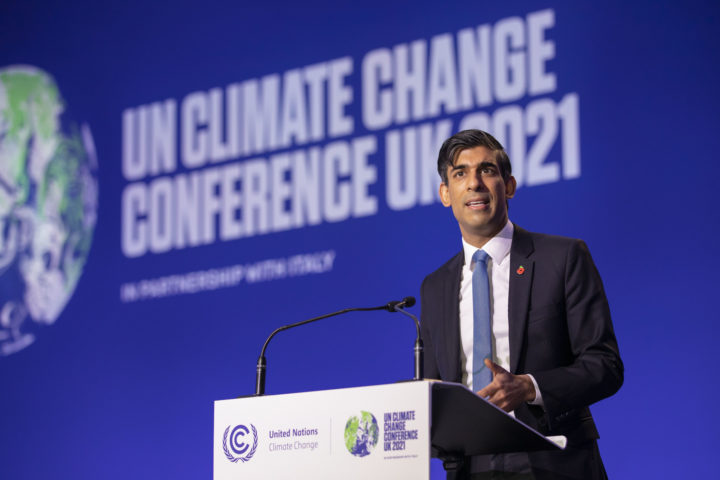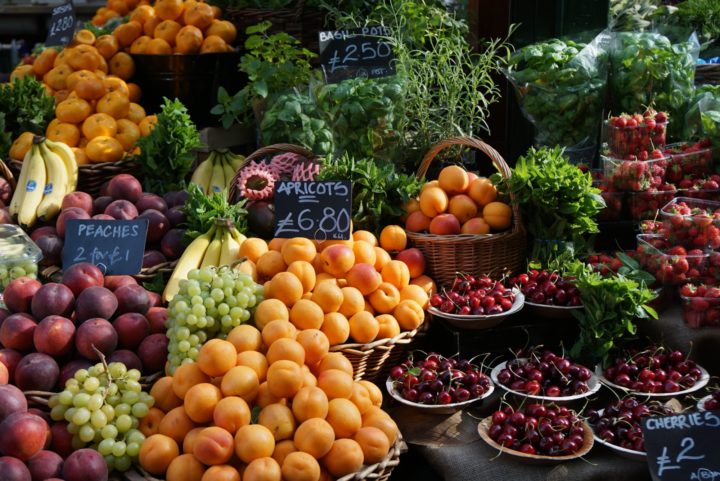UK’s £11.6bn climate pledge: what if it steps back?
As warnings grow of Britain letting its climate leadership role slip, suggestions re-emerged of cuts and delays to UK climate finance, risking both the UK's reputation and its food security.

By Gareth Redmond-King
@gredmond76Share
Last updated:
Britain has once again looked poised to step back from its commitment to international financial support. This time, as environment Minister Zac Goldsmith resigned from government, Ministers seemed set to dilute the UK's flagship £11.6bn climate and nature pledge, agreed upon ahead of COP26 in Glasgow. It exists to help developing nations that can ill afford the costs of worsening climate change - but it also helps protect globalised supply chains, including our food imports.
Land restoration in Kenya, rural electrification in Malaysia, and sustainable rural farming in Mexico are just a handful of many initiatives
that have already benefited from the money, there to help developing countries decarbonise, protect nature and build up renewable energy.

Were the UK to renege on its vow of support now – cutting or extending timescales – it would likely tarnish the legacy of its COP presidency, harm its international standing and further erode trust amongst developing nations. A body of climate experts who advised the UK government on COP26 has written to Prime Minister Rishi Sunak to express: "shared and deep concern for [the] government’s lackadaisical approach to international climate, nature, and environment issues. At a time of multiple and interrelated global crises, and growing distrust between the Global North and South, it seems, inconceivably, that the UK’s interest in the world beyond its borders has narrowed."
The £11.6bn pledge represents Britain’s share of global climate finance, but more than that it stands for an international coming together in recognition of significant collective threat.
As former World Bank and UN official, Rachel Kyte said recently, abandoning this landmark target would be “breathtakingly short-sighted.” One day when Britain needs support on climate migration and security, she said, “there will be an eerie silence.”
Climate leadership

The UK’s funding for climate projects was at £5.8 bn in the five years to 2021. With the pledge, the Government promised to double its support.
It was heralded as Britain showing leadership on the climate crisis and was part of a series of transformative goals in the build-up to COP26, along with becoming the first major economy to enshrine its net zero target into law.
Leadership works both ways, and the UK weakening its contribution could have a domino effect. Not least as it would come on top of a scaling back of UK aid more broadly – cut from 0.7% of gross national income, to 0.5%.
As it stands, the global target for climate finance remains unmet. In 2009, developed countries committed to a collective fund of $100 billion a year; there is still not one year when that figure has been achieved.
As climate impacts worsen, the IPCC has made clear that the time to adapt, to avert nature loss and to build sustainable infrastructure, is now – not down the line. The deadline can’t be put off until Westminster is feeling more generous.
If the funding were to be cut, it could leave developing countries desperate for support from elsewhere. As Camilla Toulmin, Senior Associate at the International Institute for Environment and Development, said recently, it will “leave the space open for bad actors – for Russian mercenaries who turn up to Central African nations with their offers of support instead.”
The numbers
Britain had five years to build up aid of £11.6bn by 2026, which would amount to £2.3bn a year if spread evenly over the period. The Foreign Office said it spent £1.4bn in that first year of 2021-2022, so it began on a shortfall. Spending would now need to be turbocharged to keep its promise.
But turbo-charging would be no bad thing; the need couldn’t be more urgent. Climate change is already wreaking devastation in the countries on its frontlines, such as Pakistan, ravaged by floods that deprived ten million people of safe drinking water. Or those in the Horn of Africa where an ongoing drought has left 20 million people at risk of famine.
Why Britain?
As the birthplace of the Industrial Revolution, the UK has been burning fossil fuels longer than anywhere else. Around 260 years ago, Britain began releasing carbon at a rate that still keeps our small island nation in the world’s top ten historical emitters. Much of that carbon is still up there, pushing global temperatures up by 1.1°C – 1.2°C and climbing, wreaking havoc on vulnerable nations, causing floods, sea level rises, droughts and failing crops.
The countries suffering the worst effects of climate change are the least responsible – i.e. those which emit the least – as well as being the poorest. The UK is one of the richest.
UK national interests

Abandoning the pledge would harm Britain’s international standing. It would lose the trust of the lower income nations it promised to support – trust that is crucial in international negotiations at COP. But the consequences would be felt domestically too.
Climate change is a global challenge, with the shockwaves of extreme weather events felt from their epicentre to further afield. Half of Britain’s food is imported, and half of that comes from climate change hotspots. The aftermath of devastation could be reflected in barren supermarket shelves and the soaring price of staples. We’ve already seen it with tomatoes and peppers from Spain and Portugal, and with olive oil. Shortages and price rises have been one of the top drivers of food inflation in Britain recently. And these are products from wealthy countries; with so many of our staples coming from poorer, and climate vulnerable nations, we’ll see it in rice, bananas, coffee, tea and cocoa before long.
The flagship £11.6bn climate and nature pledge seems to reflect an understanding that the sensible choice, the right choice and the fair choice is for the UK to support the protection and adaptation of lower income countries.
It was a step in the right direction at a pivotal moment in human history. Choosing to step back is a risk not just for our global reputation as climate leaders, but also our own food security.
Share